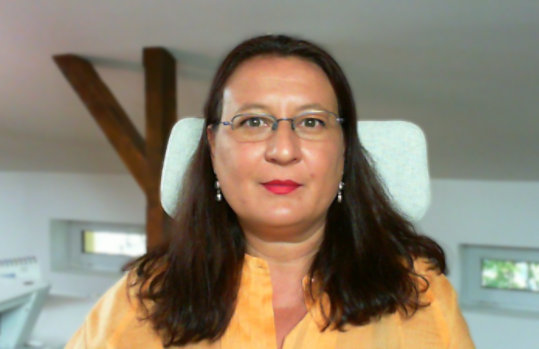Modernizing transparency

Fraud and corruption pose a never-ending threat to government finances. Valentina Ion, director of business strategy for Public Finance at Microsoft, wants to change that. Ion has seen firsthand how Microsoft ACTS, our Advanced Cloud Transparency Services initiative can help governments rein in financial corruption. It’s all part of our mission to empower governments with improved transparency. In this Q&A, Ion shares her thoughts about the important role transparency, technology, and Microsoft play in the public sector.
Why is transparency so important, especially with public finance?
Transparency helps governments build trust, and trust helps drive compliance and better cooperation. In public finance, transparency can mean sharing the outcome and destination of money. It also helps reward and protect the good players in the world. If you share data, you don’t have anything to hide. The government can then spend its efforts on identifying and fighting the bad actors.
How does technology enable transparency to fight corruption?
Technology helps make intelligence available so that governments stay informed, in real-time, enabling them to take the right measures when needed. Getting that information requires collecting all the data points from different sources, either owned by the government or private sector. You then have to compute a huge volume of information. That’s where AI developed by Microsoft and high-performance computing come into play.
What are some of the common challenges you see working with emerging and established ones?
In emerging markets, there’s a lack of capacity. They often don’t have the skills or the infrastructure in place. So, they reach out to ACTS to help them fill the gaps. That’s why ACTS is in such high demand and has such a large impact in these countries. The established markets are challenged by legacy systems. Sometimes, these systems are as old as 40 years, which is a security risk. And because the people who built the solution are no longer working there, that knowledge is lost.
Which markets do bad players tend to attack more?
For fraud and corruption, they typically target emerging nations and the economic stimulus packages that have been put into the market. At the same time, in the early days of pandemic response, the economic packages distribution was subject to identity theft and fraud, even in developed markets.
Walk me through how ACTS can help a government with public finance.
A lot of countries detect and inspect suspicious behavior, doing a deeper dive on a very small percentage of instances based on sampling and risk scoring, and depending on audit team capacity. The problem is, you can only catch what you find, if that makes sense. We use Microsoft compliance, security, and AI services along with the latest research to help guide them in building solutions that solve evolving use cases. This can help them automatically analyze all transactions, for example, and catch the bad actors.
How do you accomplish that?
Improving capacity, improving the accuracy of their detection models—which they often already have in-house. Many of these, however, are based on business rules and experiences in the past. So, they’re biased by the history, meaning they understand the problems they’ve solved, but they do not understand the problems they’re not aware of. AI identifies what the challenge is, not the other way around.
Isn’t AI complicated to introduce and manage within an infrastructure?
There has to be democratization of AI—tools that are low code/no code so they’re not extremely complicated to use. The goal is to embed tools across all the processes that are easy for employees to use and consume. The reality is there’s a shortage of talent. Take data scientists, for example. They’re a very rare resource in the public sector. By democratizing technology and helping with digital skilling, ACTS is helping fill that gap.
Doesn’t democratization also create a sort of shared experience?
Yes, we will have better results if more governments come together and work together to fight the same problem using a platform that’s used around the world.
In your opinion, what makes ACTS such a unique and powerful option for governments?
Microsoft can help give them the tools to cover the data estate modernization, data preparation, classification, and cleaning. Our cognitive services built on Microsoft Azure offer the best AI tools. Our partner network is second to none. On top of that, we’re a leader in compliance and security infrastructure and can deliver hybrid and across clouds as well as across platforms. This means governments can coordinate multi-cloud orchestration and derive insights across multi-clouds.
What about costs?
ACTS services are free of charge to the government customer. It’s a digital public service offered by ACTS that doesn’t require payment to get access to the benefits of a Microsoft Azure subscription.
How do you see ACTS succeeding in getting its message out to governments worldwide?
Aligning transparency to democracy is one, as in openly sharing democratic practices in place and measuring their success. Aligning transparency to economic development is another, so it’s like the return on investment on transparency. ACTS provides measurable outcomes. It also demonstrates successful examples of working with governments worldwide.
